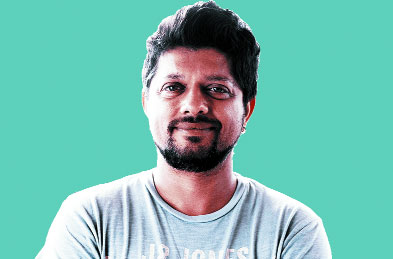Directors Karan Anshuman and Gurmeet Singh tell this writer why making crime genre films in India has certain limitations.
There’s always a spot for gore and crime content. We are all big fans of stories from the hinterland and have seen and appreciated it in films like Omkara and Gangs of Wasseypur. But one cannot do justice to this genre in cinema alone because the format comes with censorship. Cinema demands a check on the content, believe directors Karan Anshuman and Gurmeet Singh.
In Mirzapur, a small town in Uttar Pradesh well known for its carpets and brassware becomes a place for bloodshed and gang wars in a new Amazon prime series releasing on November 16.
Gurmeet says, “At our end we’re just trying to touch the walls that have not been touched. We want to push the boundaries in a manner where it’s enjoyable to watch for the audience. When there’s no curtailment you have the authority to showcase a scene in a way it should be. When there is some kind of restriction to present the content, there are big guidelines that one has to serve. You might not agree with it but you have to sanitise the content. It becomes your job to follow it.”
Whereas Karan says while explaining how it becomes trouble-free for directors like us, when there is no added pressure of restrictions. “Censorship is a thrust upon us. It’s not about showing anything and everything because you can. It becomes easy for directors to present a story in a very natural and organic manner. We won’t do anything that the script doesn’t demand just for the sake of no censorship.
Let me give a practical example, suppose there’s a scene where one has to behead a person what they do is take you away from that moment so that you cannot see it but then take you back there to make you feel the impact and effect of it, in movies. And what happens in digital is that we show it and in a manner it needs to be done, because of no issue of censorship. We can actually show how brutally one has killed or murdered someone.
“The digital format definitely allows one to push boundaries. A character is written and portrayed in a much better manner. It allows a person a lot of space to explore new possibilities,” he says.
They wanted to create a world that was hyper-real, a world of violence where even the nicest person would have a gun and could pull the trigger if it needs to be pulled.
Gurmeet feels that Mirzapur is a lot more about youngsters’ aspirations from small towns and how they act according to given circumstances. The characters and their relationships are emotional. All the characters are heroes in their own arc, so each type of audience will find something to relate to. This definitely sets the series apart from the stories of Gangs of Wasseypur and Omkara.
“This is not an exploration of good vs evil. It’s just a story of gang wars. We have showcased violence and visceral imagery,” says Karan.
Writer: Ayushi Sharma
Courtesy: The Pioneer








 OpinionExpress.In
OpinionExpress.In















Comments (0)